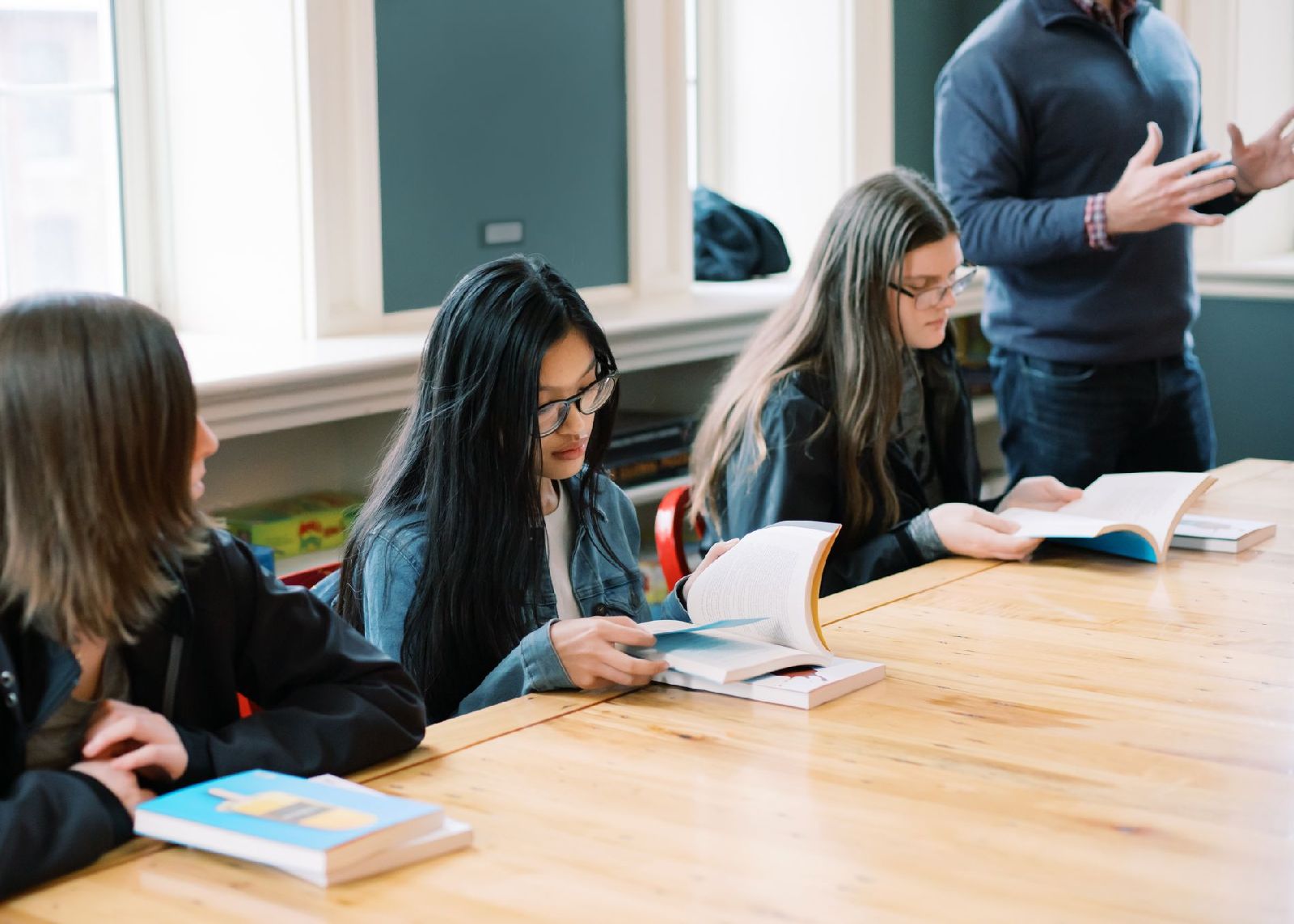We know this fall’s going to be a weird one. We’re here to help with your classroom (or home school) planning!
Here’s one thought:
Give your students a break from the screen by putting print issues of The Common in their hands– just $20/student:
Two issues for each student, free desk copies for teachers (that means you too, parents!), as well as sample lesson plans and related readings. You can also schedule a Zoom visit with the Editor in Chief, providing students a window into the world of editing and publishing. Or, we can facilitate a virtual visit with one of our contributing authors.
Single-issue subscription options are also available. Contact us for more information or to place an order.

What’s New
Issue 19 prose features a portfolio of fiction and art from Sudan, as well as short stories dealing with the harsh realities of death and grieving (Thoraya El-Rayyes‘s “Joint Account” and Bina Shah‘s “Weeds and Flowers”), and fiction that addresses the complex effects of isolation: David Moloney‘s “Counsel” and Catherine Buni‘s “Speed of Flight.” Several pieces in the issue explore sibling relationships: in his powerful debut essay “Nothing More Human,” Suraj Alva testifies in court as witness to his brother’s murder and reflects on their rocky childhood; in fiction by Omer Friedlander (“Operation Tamar”), a child wrestles with his idolization of his brother, as he comes of age against the backdrop of the 1967 Arab-Israeli War, and in Tanya Coke‘s essay “Brother Love,” Coke details the rekindling of her relationship with her half-brother in the wake of her father’s death.
Issue 19 poetry: Reilly D. Cox examines societally imposed concepts of gender and womanhood, while Bino A. Realuyo explores masculinity as it relates to religious spirituality and child-rearing. Meanwhile, Emily Leithauser‘s “Epithalamium” and Marcus Myers‘s “Love Song (1)” both convey shifitng dynamics within unsteady romantic relationships. Other featured poets include January Gill O’Neil, John Freeman, and a collaboration between Don Share and John Kinsella.
Issue 19 is suitable for the following courses/topics: creative writing, contemporary literature, comparative literature, poetry, first-year seminar, memoir/personal essay, translation studies, art & art history, Arabic studies, Middle Eastern studies, religious studies, Western critique, gender and sexuality studies, Black studies.
Issue 20 (forthcoming early November)
Issue 20 features a portfolio of prose and poetry from and about the Lusosphere (Portugal and its linguistic and colonial diaspora), including fiction from Teolinda Gersão, Hélio Pólvora, and Katherine Vaz, nonfiction by Susan Moreira Marques, Joaquim Arena, and Rui Cardoso Martins, poetry from Eliane Marques, Landa Wo, and Shauna Barbosa, and more. The portfolio will be expanded on our website, where students will find an interview with acclaimed translator Alison Entrekin, an engaging hybrid text-image piece by Kanya Kanchana that investigates Portugal’s colonial mark on India, as well as a rich array of fiction, poetry, essays, and short dispatches. Taken together, these works will provide students the opportunity to deeply engage with questions of place, language, family, belonging, and justice, while grappling with the enduring legacies of colonialism and empire.
Our 20th issue, which marks The Common‘s 10th year of publishing, will also include Fransisco Marquez‘s 2020 DISQUIET Literary Prize-winning poem, “Provincetown,” as well as fiction by Argentine-Spanish writer Clara Obligado and Amalia Gladhart, and essays by LaToya Faulk, David Lynn, and Deborah Williams that will take students inside Black women’s search for home and on journeys from the US to the English countryside, from the UAE to South Africa.
Issue 20 is suitable for the following courses/topics: creative writing, contemporary literature, comparative literature, poetry, first-year seminar, memoir/personal essay, translation studies, art & art history, gender and sexuality studies, Black studies, Portuguese literature and history, colonialism and its historical and cultural legacies.
Additional resources for teachers
Discounted Digital Editions: Put The Common in your students’ hands today, available for download immediately. Select from Kindle, ePub, or PDF options; $2/issue.
Free Lesson Plans and Complementary Resources: Use or adapt example assignments from your fellow teachers; visit the “Teach” page for each issue to find readings, interviews, and audio to accompany the issue and enhance student engagement.
Free Online Access to Everything We Publish: We have always been committed to ensuring open access to our excellent place-focused literature. Browse and select individual poems, essays, stories, works in translation, audio recordings, and interviews.
Focus on Works in Translation: In addition to our annual portfolios of Arabic fiction, each month we publish a special translation feature from around the world, introduced by a translator’s note that provides unique perspectives on the translation process as well as on the creative works at hand. Pair with these supplemental readings and this lesson plan.
Creative Writing Classroom Exercises: Looking for a curriculum to get your students writing (and revising)? We’ve compiled a 10-part series of generative writing and revision exercises (30 in total) alongside advice from our editors to help students develop their writing skills and establish a writing practice. $25 for the collection; select from either fiction/nonfiction or poetry.
Please be in touch with any questions or for assistance with a classroom subscription. You can reach me at liz@thecommononline.org.
Elizabeth Witte
Associate Editor, The Common
Director, The Common in the Classroom




